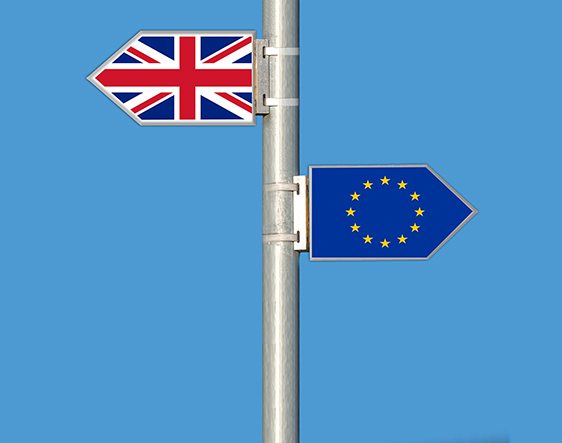If you look at the performance of the headline FTSE 100 index over the last couple of days, you could be forgiven for thinking it was a relatively quiet end to the trading week. The modest movement of the index as a whole masks some big price swings within it though. Contributor Laith Khalaf, Senior Analyst – Hargreaves Lansdown.
That’s because the UK stock market is currently largely divided into two camps – ‘Brexit beauties’ and ‘Brexit beasts’. The beauties are stocks with lots of international revenue streams, like Royal Dutch Shell, Unilever, and Diageo. The share prices of these companies tend to do well when Brexit looks like it may unravel in a disorderly fashion, because a falling pound boosts the value of the profits they make in dollars, euros, yen and yuan.
The beasts, on the other hand, tend to see their shares sell off when the market thinks Brexit is heading down a dark alley. These are companies which are heavily plugged into the domestic UK economy, like the banks, Lloyds and RBS, the housebuilders Persimmon and Taylor Wimpey, and the retailers M&S and Next. The fear is if Brexit goes badly, the UK economy will suffer and the profits these companies can make will be dented, and this concern is then manifested in weaker share prices.
This has been the story of the last few days, and indeed the last few years, ever since the EU referendum was announced. We can probably expect this to continue for the foreseeable future too, until there is some clearer resolution on Brexit. The political situation in the UK is clearly fragile at the moment, and that’s feeding into the share prices of both the beauties and the beasts, sending them in different directions, with the net effect that the headline index looks deceptively flat overall.
Some of the beasts look like they are trading at attractive valuations. Lloyds for instance currently has a prospective dividend yield of around 5.5%. When the current chief executive Antonio Horta Osorio took over in 2011, the bank was making a loss of £260 million. Last year it made a profit of £3.5 billion, yet today the share price is lower than when Horta Osorio became the Lloyds boss.
On the face of it this doesn’t make a great deal of sense. However a company’s share price is determined by the future profits investors think it can generate. The market is selling down Lloyds and the other beasts because, at best, it doesn’t know what the next year holds for their profitability while Brexit hangs in the balance. At worst, it fears the UK economy could deteriorate, and these companies’ profits would take a hit. The possibility things actually turn out ok is not getting much of a look in at the moment.
What should investors do?
Given the high degree of uncertainty surrounding Brexit and the potential effects on the financial markets, it’s probably best not to express too strong a view, one way or the other, with your investments. Keeping balance and diversification is the order of the day, so that whichever way the Brexit pendulum swings, your portfolio can handle it.
Strangely enough, the beauties and beasts of the UK stock market mean it’s possible to keep some balance even if you’re just thinking about investing in the UK, because these two groups can be expected to react differently depending on how Brexit develops.
UK investors can also invest in overseas markets to gain diversification. The value of these holdings can still be affected by Brexit however, for two reasons. First, a disorderly Brexit isn’t going to be great news for the global economy. Second, once again the fortunes of the pound will, at least in the short term, play a part in the performance of overseas investments for UK sterling-based investors.
A weaker pound boosts the sterling value of overseas shares because, like the big international stocks of the FTSE 100, they have lots of revenues in foreign currencies. On the flip side, if the perception of Brexit improves, a rising pound will take the shine off the performance of these overseas assets. Once again the logical conclusion is not to have all you portfolio pointing in one direction, because no-one knows how Brexit is going to turn out.
Investors generally have been selling out of UK stock market funds in recent years, and it may be that has left some of them under-exposed to this area. This will probably serve them well if we get what the market deems to be a bad Brexit, but they may find themselves left behind if our withdrawal from the EU turns out better than expected.
There’s also the question of what to do if you’ve got money to invest. A regular saving plan can come in handy here because by drip feeding your investment into the market, you buy in at a range of prices. Even if the market dips, that means some of your money goes in at a lower level, buying more shares. This makes for a smoother investment journey.
Markets and political uncertainty don’t make good bedfellows, and so this is an uncomfortable time for investors. In such circumstances it’s a good idea to remember the basics of investing. That means keeping diversified, maintaining a long term view, and making decisions based on considered reflection rather than emotion.









